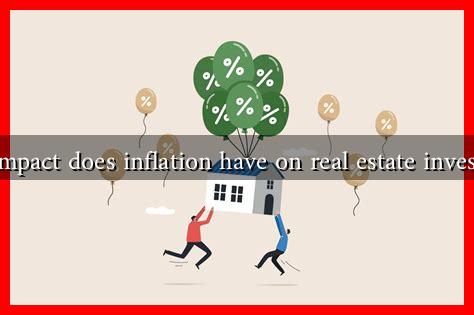-
Table of Contents
- What Impact Does Inflation Have on Real Estate Investments?
- The Positive Effects of Inflation on Real Estate Investments
- The Negative Effects of Inflation on Real Estate Investments
- Case Studies: Real Estate During Inflationary Periods
- Strategies for Navigating Inflation as a Real Estate Investor
- Conclusion
What Impact Does Inflation Have on Real Estate Investments?
Inflation is a critical economic factor that affects various sectors, including real estate. As prices rise, the purchasing power of money decreases, leading to significant implications for real estate investors. Understanding these impacts is essential for making informed investment decisions. This article explores how inflation influences real estate investments, examining both the positive and negative effects, supported by relevant examples and statistics.
The Positive Effects of Inflation on Real Estate Investments
While inflation can pose challenges, it also offers several advantages for real estate investors. Here are some of the positive impacts:
- Increased Property Values: Historically, real estate has been a hedge against inflation. As the cost of living rises, property values tend to increase. For instance, during the inflationary period of the 1970s, home prices in the United States rose significantly, providing substantial returns for investors.
- Higher Rental Income: Inflation often leads to increased rental prices. Landlords can adjust rents to keep pace with rising costs, which can enhance cash flow. According to a report by the National Association of Realtors, rental prices have increased by an average of 3-5% annually in inflationary periods.
- Debt Repayment in Cheaper Dollars: For investors who finance their properties with fixed-rate mortgages, inflation can be beneficial. As inflation rises, the real value of debt decreases, allowing investors to repay loans with money that is worth less than when they borrowed it.
The Negative Effects of Inflation on Real Estate Investments
Despite the potential benefits, inflation can also create challenges for real estate investors. Here are some of the negative impacts:
- Increased Construction Costs: Inflation can lead to higher costs for materials and labor, making new construction projects more expensive. This can deter new developments and reduce the supply of available properties, ultimately affecting market dynamics.
- Higher Interest Rates: Central banks often respond to inflation by raising interest rates. Higher borrowing costs can make financing more expensive for real estate investors, potentially leading to reduced investment activity. For example, the Federal Reserve’s rate hikes in response to inflation in 2022 led to a slowdown in the housing market.
- Market Volatility: Inflation can create uncertainty in the market, leading to fluctuations in property values. Investors may find it challenging to predict future returns, which can complicate investment strategies.
Case Studies: Real Estate During Inflationary Periods
Examining historical case studies can provide valuable insights into how real estate investments have fared during inflationary periods:
- The 1970s Oil Crisis: During this period, the U.S. experienced significant inflation, with rates peaking at over 13%. Real estate values soared as investors sought tangible assets to protect against inflation. Properties in urban areas saw substantial appreciation, demonstrating the resilience of real estate investments.
- The 2008 Financial Crisis: Although primarily a deflationary period, the aftermath of the crisis saw inflationary pressures due to government stimulus measures. Real estate values initially plummeted but eventually rebounded as inflation took hold, highlighting the long-term value of real estate as an investment.
Strategies for Navigating Inflation as a Real Estate Investor
To mitigate the risks associated with inflation, real estate investors can adopt several strategies:
- Invest in Income-Generating Properties: Focus on properties that can generate consistent rental income, which can be adjusted for inflation.
- Diversify Your Portfolio: Consider diversifying into different types of real estate, such as commercial, residential, and industrial properties, to spread risk.
- Utilize Fixed-Rate Financing: Locking in low-interest rates can protect against rising borrowing costs during inflationary periods.
Conclusion
Inflation has a multifaceted impact on real estate investments, presenting both opportunities and challenges. While rising property values and increased rental income can benefit investors, higher construction costs and interest rates can pose significant hurdles. By understanding these dynamics and employing strategic approaches, real estate investors can navigate inflation effectively and continue to build wealth in a fluctuating economic landscape. As always, staying informed and adaptable is key to successful investing.
For further reading on the relationship between inflation and real estate, consider visiting Investopedia.

